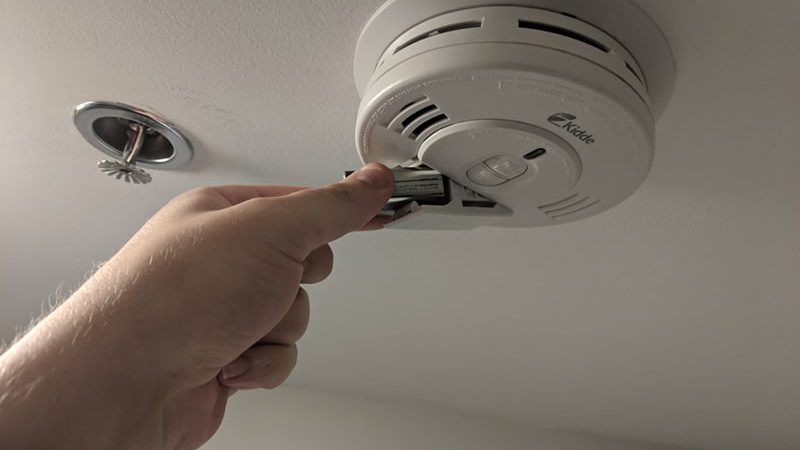Thursday Sept. 28 will mark the first ever Ontario wide “Test Your Smoke Alarms Day”.
Parry Sound Fire Prevention Officer John Tuck says he’s hoping everyone will test their alarms that day to make sure that they are operating.
“It’s really important to test them because they’re mechanical devices, so they can fail and it’s important that you clean them probably every other month and just run a vacuum around it. You don’t have to touch the vacuum to it, but it just pulls out any dust cobwebs,” he says.
Tuck says make sure that they’re clean and they have fresh batteries and/or backup batteries. He says something people don’t realize with the hardwire smoke alarms that have backup batteries is when we have a power outage, that alarm uses a lot of the battery life up in it. As a result, Tuck says if the power is off for three to four hours once or twice, there’s a good chance your smoke alarm will start beeping to tell you have a low battery.
Tuck says “Test Your Alarms Day” is a public education program.
“We’re trying to educate everyone to make their home safe. To test their smoke alarms. If they don’t test properly then replace them. If they can’t replace it or they’re not sure they can call their local fire department and they will definitely send someone out to assist them,” he says.
When someone in Parry Sound requests assistance, whether you have the alarms or not, Tuck says the town doesn’t charge because you’re trying to make your home safer.
“The last thing we want to do is start charging people because you’re inviting us in. So if we’re invited in the ticket book does not come out. Our main goal is to educate and as I like to say, make Parry Sound the safest and most fun place to play and live,” he says.
Tuck says educating people about fire safety is very important to him personally.
“When I was 12 years old, I lost my aunt and four of my nephews to a house fire, and that has always been a big motivator for me and doing this job,” he says.
Tuck says he knows some people think it’s not going to happen to them, but it does. He says it happens all the time, so the town is just trying to make people as safe as possible.
The Ontario Fire Marshall’s office has done a lot of tests on how much time you have to get out once a fire breaks out in your home, says Tuck, and they figured it’s about two minutes.
He says if you don’t have alarms, which act as an early warning device, the fire could already be burning for five or six minutes before anyone realizes.
In Ontario, Tuck says it’s the law to have working smoke and carbon monoxide alarms.
“You have to have one on every level, so in the basement, whether there’s a sleeping area there or not, on the main floor if you have different levels and one smoke alarm outside the sleeping areas on every level. If there’s no sleeping area on that level, then you should have it by the stairwell. Where you go up and down, where you enter and exit that room,” he says.
When it comes to fines, Tuck says for property owners it’s a $360 fine for each alarm that’s not installed or maintained or it’s up to $50,000, up to a year imprisonment, or both if the town was to subpoena you to court.
“Those are very, very drastic measures and tools that we have that we can and have used. As for tenants, [they] are not obligated to change the batteries or maintain them. The owner/landlord/supervisor/superintendent by law have to. But for the tenants, they’re required if there’s ever any issues with their alarm, to contact the owner/landlord/supervisor/superintendent or it’s a fine for them if they do not report it,” he says.
Tuck says failing to report and removing or disabling an alarm can all lead to charges for a tenant, too.
“So it just builds up from there, and they can be quite substantial fines if people don’t do that. Now for landlords, we normally subpoena them to court because they have a higher responsibility and it is their responsibility to assure that they have working smoke and CO alarms, means of egress are clear if they have a shared entrance, that all has to be maintained clear of boots, coats, you know, nothing can be out in those areas,” he says.




